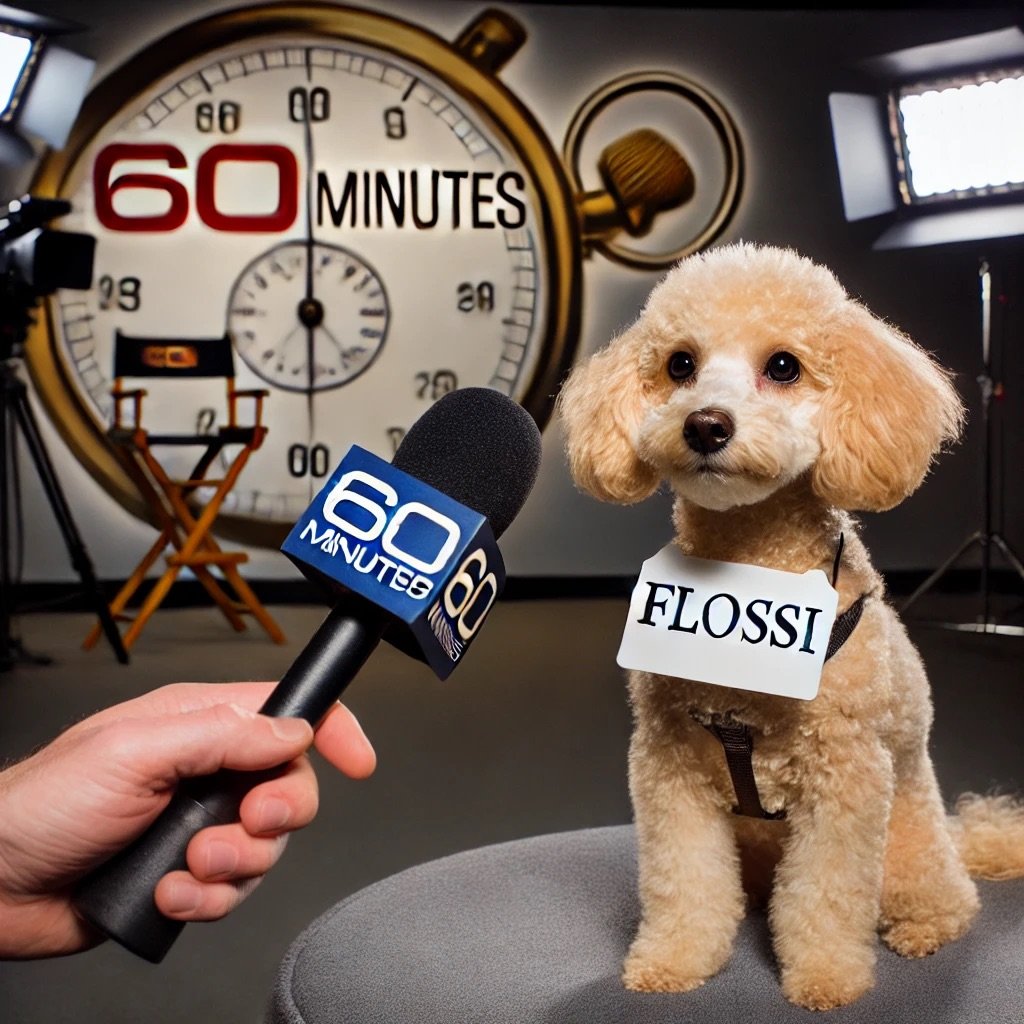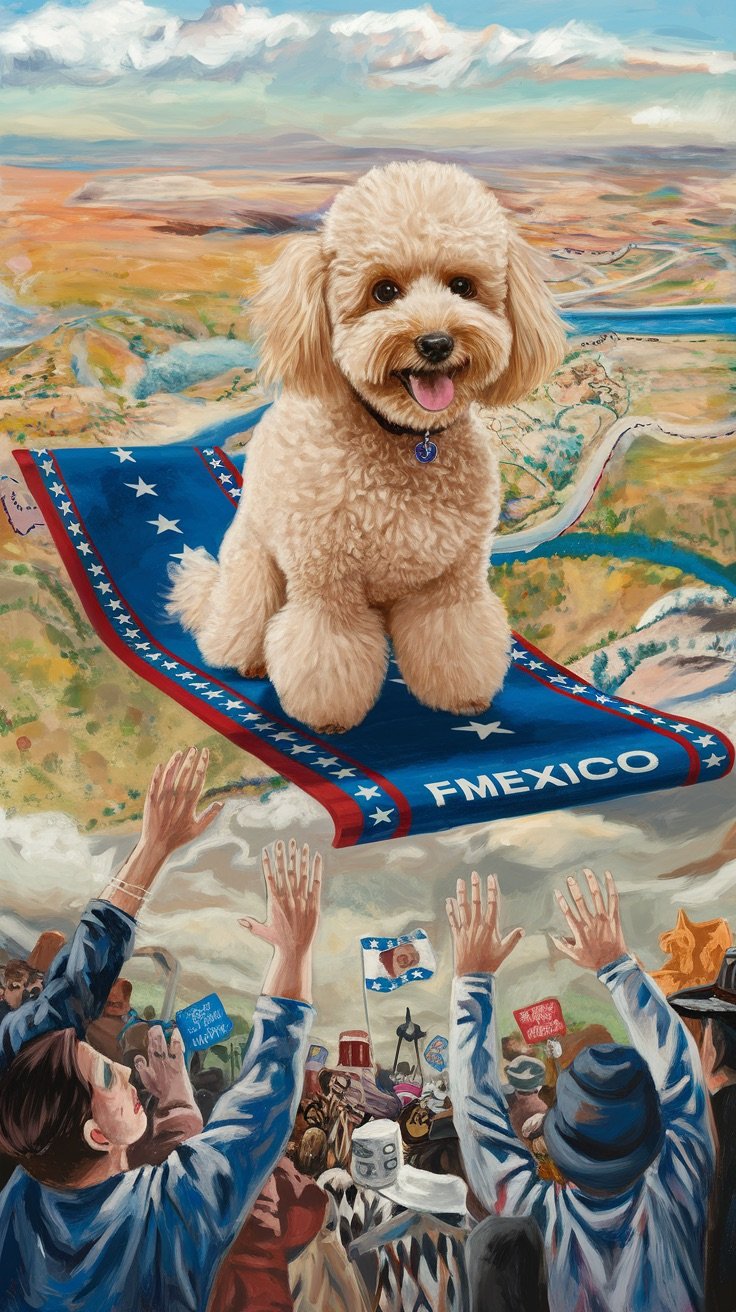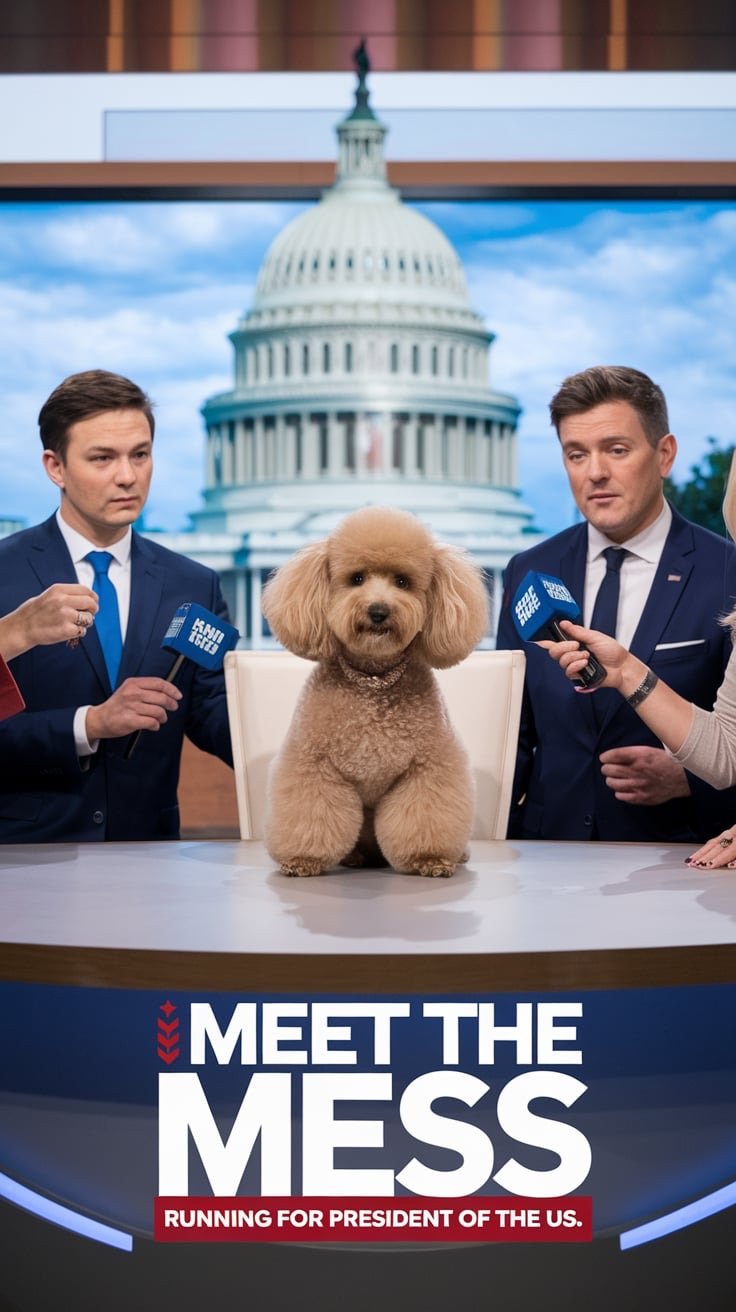FLOSSI PONDERS MSNBC DEAL
"To his dog, every man is Napoleon; hence the constant popularity of dogs."
– Aldous Huxley, writer and philosopher
In the 19th and 20th centuries, several notable individuals blended careers in media or entertainment with involvement in U.S. politics, often using their platforms to influence public opinion or pursue political office. Here are some examples:19th Century
1. Horace Greeley:
Media: Founder and editor of the New York Tribune, one of the most influential newspapers of the 19th century.
Politics: Greeley was a prominent political figure who supported the abolitionist movement and ran for president in 1872 as the candidate of the Liberal Republican Party.
2. P.T. Barnum:
Entertainment: Known as the Barnum & Bailey Circus founder, Barnum was a master showman and marketer.
Politics: Served as a member of the Connecticut Legislature and later as the Mayor of Bridgeport, Connecticut, using his influence to advocate for causes such as temperance and antislavery.
3. Frederick Douglass:
Media: As a former slave, Douglass founded and edited several abolitionist newspapers, including The North Star, to advocate for emancipation and civil rights.
Politics: Douglass held various political appointments, including U.S. Marshal for the District of Columbia and Minister Resident to Haiti.
20th Century
1. William Randolph Hearst:
Media: Built a vast newspaper empire, including the San Francisco Examiner and New York Journal, and became a pioneer of "yellow journalism."
Politics: Served as a U.S. Congressman from New York (1903–1907) and unsuccessfully ran for Mayor of New York City and Governor of New York.
2. Joseph Pulitzer:
Media: Pulitzer, who published the St. Louis Post-Dispatch and New York World, used his newspapers to champion progressive causes and expose corruption.
Politics: Served as a U.S. Congressman from New York (1885–1886) and was deeply involved in political advocacy through his media outlets.
3. Al Jolson:
Entertainment: A celebrated vaudeville and Broadway performer known for his groundbreaking work in The Jazz Singer (1927), the first "talkie."
Politics: Actively campaigned for various political figures and supported war efforts during World War II through USO performances.
4. Ronald Reagan:
Entertainment: A Hollywood actor and Screen Actors Guild president during the 1940s and 1950s.
Politics: Transitioned into politics, serving as Governor of California (1967–1975) and later as the 40th President of the United States (1981–1989).
5. Shirley Temple:
Entertainment: A child star of the 1930s and one of Hollywood’s most iconic actresses.
Politics: Served as a U.S. diplomat, including roles as U.S. Ambassador to Ghana (1974–1976) and Czechoslovakia (1989–1992).
6. Bing Crosby:
Entertainment: An iconic singer and actor, Crosby became a cultural phenomenon through his music and films.
Politics: Though he did not hold office, Crosby was an active supporter of various political campaigns, including that of Dwight D. Eisenhower, and used his platform to influence public opinion.
Flossi to 60 Minutes: Please Edit Out My Barks
$2.6 million per episode. Maybe.
The advertising revenue for CBS’s "60 Minutes" is estimated to be substantial, given its high viewership and consistent performance as one of the top-rated non-sports prime-time programs. In recent years, CBS charged approximately $130,000 for a 30-second ad spot during "60 Minutes" in 2020-2021. The show averages around 8-9 million viewers, which translates into significant annual advertising income, likely amounting to hundreds of millions yearly.
The number of 30-second ads run during an episode of 60 Minutes can vary, but typically, there are about 10-12 minutes of commercial breaks in a one-hour broadcast. This would translate to around 20 to 24 30-second ads per episode. However, the exact number may differ slightly based on the program's content and the network's commercial structure for a broadcast.
Flossi Travels to the Border
Mexico lost a significant portion of its territory to the United States after the Mexican-American War (1846-1848) with the signing of the Treaty of Guadalupe Hidalgo on February 2, 1848. This treaty ended the war and resulted in Mexico ceding about 55% of its territory to the U.S., which included present-day California, Arizona, New Mexico, Nevada, Utah, and parts of Colorado, Wyoming, and Texas.
Key Points:
1. Mexican Cession (1848): In the Treaty of Guadalupe Hidalgo, Mexico agreed to cede approximately 525,000 square miles of land to the U.S. in exchange for $15 million and the U.S. assumption of around $3.25 million in claims by American citizens against Mexico.
2. Texas Annexation (1845): Before the war, the U.S. had already annexed Texas in 1845, which triggered the conflict. Texas had declared independence from Mexico in 1836 but was not officially recognised by Mexico, which led to tensions.
3. Gadsden Purchase (1853): Five years later, in 1853, the U.S. acquired an additional 29,670 square miles of land (in present-day southern Arizona and southwestern New Mexico) for $10 million through the Gadsden Purchase, which completed the current U.S.-Mexico border.
Hot Mic Moments
One of the most infamous "hot mic" moments during a U.S. presidential campaign occurred in 2012 when then-President Barack Obama was caught on a hot mic during a conversation with then-Russian President Dmitry Medvedev. The incident happened at a nuclear security summit in Seoul, South Korea.
The Comment:
Obama was heard saying to Medvedev, "This is my last election. After my election, I have more flexibility." Medvedev responded, "I understand. I will transmit this information to Vladimir." The "Vladimir" in question was Russian President Vladimir Putin.
Context and Reaction:
The comment was made about negotiations about missile defence systems between the U.S. and Russia. Obama was signalling that he would be better positioned to negotiate after the 2012 election when re-election concerns would no longer constrain him.
The 'hot mic' moment sparked a firestorm of controversy, particularly among Republicans. They accused Obama of signalling to Russia that he would make concessions after the election. This incident became a heated talking point in the 2012 campaign, with critics arguing that it revealed a potential weakness in foreign policy.
Legacy:
The comment is often remembered as one of the most significant hot mic moments in U.S. presidential politics, raising questions about diplomatic transparency and the influence of electoral politics on international negotiations.
Flossi Debate Prep
The Debate on Imperialism in 1898 was a major turning point in American foreign policy, triggered by the U.S. victory in the Spanish-American War and the subsequent acquisition of overseas territories such as the Philippines, Guam, and Puerto Rico. This debate revolved around whether the U.S. should pursue a policy of imperial expansion or adhere to its historical principles of self-determination and non-intervention.
The Spanish-American War in 1898 resulted in a quick victory for the United States, and the Treaty of Paris formally ended the conflict. The treaty ceded control of several territories, including the Philippines, Cuba, Puerto Rico, and Guam, to the U.S. This raised fundamental questions about America's role in the world and whether it should become a colonial power like European nations.
Participants:
Against Imperialism:
1. William Jennings Bryan:
- Position: Leader of the Democratic Party and a staunch advocate of anti-imperialism.
- Arguments: Bryan believed imperialism fundamentally opposed American democratic values. He argued that the U.S. should not impose its will on other nations and that all people have the right to self-governance. He feared that controlling overseas territories would lead to costly entanglements in foreign wars and erode American democracy at home.
- Key Quote: “It is not necessary to own people to trade with them.”
2. Mark Twain:
- Position: Famous author and vice president of the Anti-Imperialist League, Twain became one of the most vocal critics of American imperialism.
- Arguments: Twain was deeply disturbed by what he saw as a betrayal of American ideals. He criticised the U.S. for acting like the European colonial powers it had historically opposed. Twain's critiques were often biting and sarcastic, attacking the moral justifications of imperialists.
- Key Quote: “I have seen that we do not intend to free, but to subjugate the people of the Philippines. We have gone there to conquer, not to redeem.”
3. Andrew Carnegie:
- Position: Industrialist and philanthropist who used his influence to speak against imperialism.
- Arguments: Carnegie staunchly advocated for global peace and believed imperialism would lead to costly and unnecessary wars. He even offered to pay the U.S. government $20 million, the amount agreed upon in the Treaty of Paris to purchase the Philippines, if the U.S. would let the Filipino people govern themselves. Carnegie viewed imperialism as detrimental to both the U.S. and the territories it sought to control.
# Pro-Imperialism:
1. Henry Cabot Lodge:
- Position: A leading Republican senator and strong advocate for imperialism.
- Arguments: Lodge believed that expanding U.S. territory was a natural consequence of America's growing power and influence. He saw imperialism as a way for the U.S. to secure its position in the world and compete with European empires. Lodge argued that acquiring new territories would open up economic opportunities for American businesses and strengthen the nation’s global influence.
- Key Quote: “Commerce follows the flag.”
2. Theodore Roosevelt:
- Position: Then-Governor of New York and former leader of the Rough Riders, Roosevelt was a passionate advocate for American expansionism.
- Arguments: Roosevelt supported the idea that it was America's duty to "civilise" and uplift the peoples of the new territories. He believed that imperialism was not only beneficial for the U.S. but also a moral obligation to spread American values, governance, and economic systems. He famously argued that the U.S. should not shy away from global responsibilities and that imperialism was the natural result of America’s rise as a world power.
- Key Quote: “We cannot avoid the responsibilities that confront us in Hawaii, Cuba, Puerto Rico, and the Philippines.”
Key Themes of the Debate:
1. Moral and Ethical Arguments:
- Anti-imperialists like Bryan, Twain, and Carnegie argued that imperialism was inconsistent with American values of freedom, self-governance, and democracy. They believed that subjugating other nations was a betrayal of the principles the U.S. was founded upon.
- Pro-imperialists like Lodge and Roosevelt countered by framing imperialism as a benevolent act. They argued that the U.S. was not exploiting these territories but helping to civilise and modernise them.
2. Economic Interests:
- Proponents of imperialism saw the acquisition of territories as an opportunity to expand markets for American goods and resources. They believed that controlling strategic locations like the Philippines would boost U.S. economic power.
- Opponents feared that these territories would be expensive to maintain and would entangle the U.S. in costly conflicts.
3. Racial and Cultural Justifications:
- Imperialists often used racist and paternalistic justifications, claiming that non-Western peoples were incapable of self-governance and needed American guidance. This "white man's burden" mentality was popular among many advocates of expansion.
- Anti-imperialists condemned these ideas, arguing that all people, regardless of race or culture, had the right to self-determination.
4. National Security and Geopolitical Strategy:
- Pro-imperialists argued that controlling overseas territories would enhance U.S. military and strategic power. The Philippines, in particular, was seen as a gateway to Asia and a critical point for projecting American influence.
- Anti-imperialists warned that acquiring new territories would drag the U.S. into international conflicts and force the country into a role as a global policeman.
Outcome of the Debate:
Despite the strong opposition from anti-imperialists, the pro-imperialist side prevailed, and the Treaty of Paris was ratified in 1899, officially making the Philippines, Guam, and Puerto Rico U.S. territories. The U.S. maintained control over these territories for decades, and the debate left a lasting legacy on American foreign policy. The anti-imperialist movement, although unable to stop the expansion, influenced future debates on America's role in the world and its foreign interventions.
Legacy:
The debate over imperialism in 1898 set the stage for the U.S.'s evolving role as a global power. It also highlighted tensions between American ideals of liberty and democracy and the realities of power politics and economic interests. Many of the arguments from this debate re-emerged in later foreign policy discussions, particularly during the Cold War and more recent interventions.
Flossi on Meet the Mess
As of 2023-2024, the viewership numbers for "Meet the Press" and "Face the Nation" show these programs remain among the most-watched Sunday political talk shows:
- "Meet the Press" on NBC averaged around 2.6 million viewers in early 2024, with roughly 500,000 viewers in the key demographic of adults aged 25-54.
- "Face the Nation" on CBS saw an average viewership of 3.3 million, with 693,000 viewers in the 25-54 age demographic.
Both programs continue to attract significant audiences, although "Face the Nation" tends to lead in total viewership, while “Meet the Press" often performs well in the 25-54 demographic.








